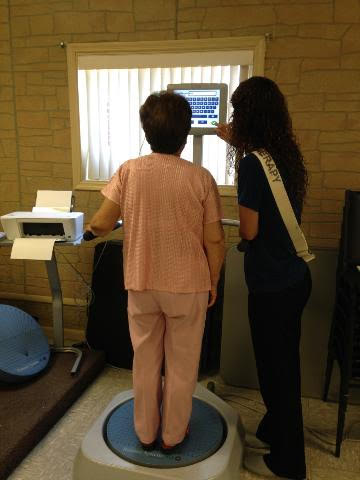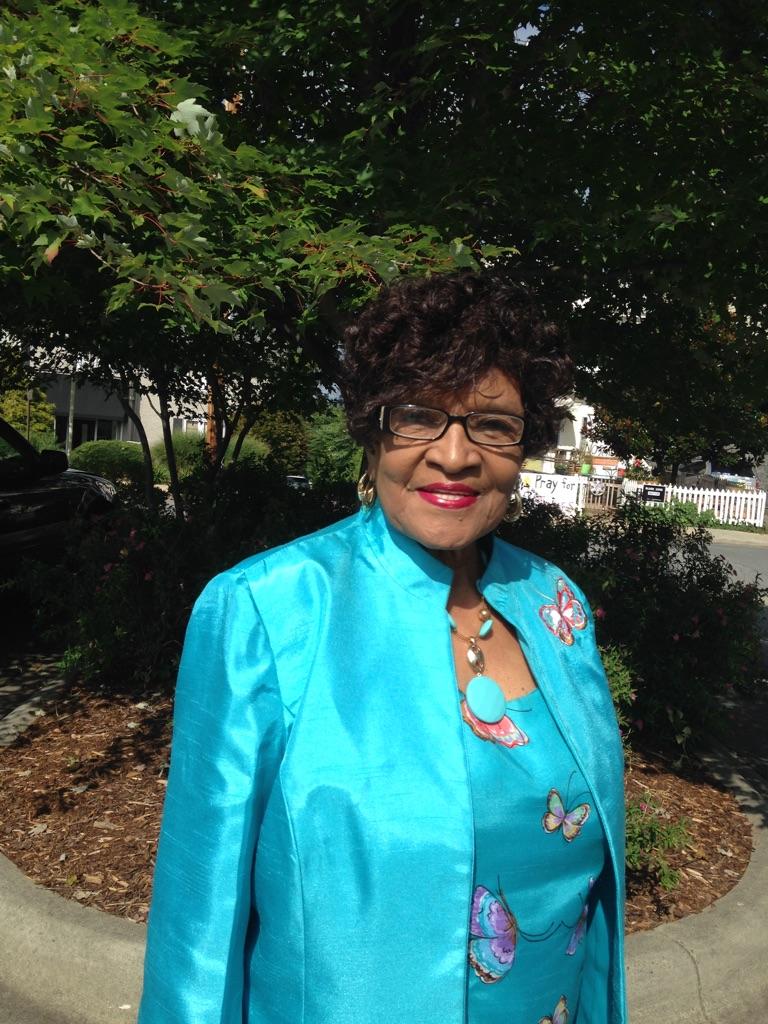Eighty-nine-year-old Edna Ashley pops with enthusiasm as she talks about downtown Asheville’s dining-and-wellness site, the Senior Opportunity Center. “This is the best place for me to come because I’m around other people,” she says.
“I don’t have to be home just looking at the TV all day. It helps my mind, helps my mind a lot, to be around a lot of people, especially at my age,” says the native Ashevillean, her words snappy and strong. “I feel happier when I’m here because there are so many things for us to do,” she says, referring to meals, art and exercise.
Ashley is one of many seniors who have found that staying socially connected can be a challenge as they age.
Social isolation and loneliness are twice as dangerous as obesity to people’s health, and the mortality risk is comparable to smoking, according to research referred to by Asheville author Gregg Levoy, the keynote speaker at the Wednesday, Sept. 7, Successful Aging conference sponsored by the Council on Aging of Buncombe County (for more information, see below).
Fortunately, Western North Carolina seniors have a number of programs and services to help them stay connected.
Juanita Igo, care manager at the Council on Aging of Buncombe County, often helps elders struggling with isolation and depression. They haven’t found their way to a senior community center or some other social activity for older adults — or they don’t know about them, she says. But there are a number in and around Asheville, says Igo.
“Sometimes they [seniors] are very isolated. They’re isolated in their homes; they might have medical conditions that make them tired, or they’re tired from the medications,” she says. Seniors can face a combination of challenges, including diminished income, housing costs, transportation, loss of a spouse and independence, Igo adds.
Trained in the Healthy IDEAS depression screening protocol (“identifying depression, empowering activities for seniors”), Igo helps develop wellness plans for seniors who are depressed due to a variety of life challenges.
“One client I worked with basically lost her home of many years because her husband died, and she couldn’t afford to live there anymore,” says Igo.
“She had the support of her daughters but had experienced great losses with her husband and with her home. [In addition] she couldn’t drive anymore, so she felt isolated because she lived in a rural area,” Igo explains. “She couldn’t get to her church or doctor appointments without asking for assistance.” The elderly woman didn’t want to be a burden on her family and friends, so she didn’t ask for rides and eventually “became more and more isolated” and depressed. Igo was called in to help.

Over a three-month period, the care manager encouraged the woman to attend the local senior center and ask her family for help. Igo also arranged for Mountain Mobility, Buncombe County’s community transportation system, to help her get around. By the end of that period, the woman went from being quiet and serious to “chatty, smiling, talking about going to the dining center, to the church. … Her daughter [told me] they felt like they had their mother back,” says Igo.
“Combating social isolation, that is the most important thing we do,” says Phil Gale, senior dining program manager for the Council on Aging of Buncombe County. Gale oversees the dining-and-wellness site Ashley attends, as well as three others in South Asheville, Black Mountain and Weaverville. Each location offers healthy meals catered by Moose Cafe as well activities such as arts, crafts and exercise.
For seniors who have a passion for learning, Asheville’s Osher Lifelong Learning Institute offers a large selection of courses and workshops. But the center is more than that, says its executive director, Catherine Frank. “Creating a community of people is as important as the classes we provide.”
This is especially important, she notes, as 90 percent of Osher members have relocated from somewhere else, leaving behind family, work and other lifelong social connections.
Many Osher members feel the center is a lifeline and that “they are building deeper friendships than they have ever had in their lives,” Frank says, “because instead of making connections based on family or a job, they are meeting people.”
Both Frank and Gale say volunteer opportunities can be as important as meals, classes and community.
“There are so many places in Asheville and Western North Carolina where you can take classes and learn wonderful things,” says Frank. But at Osher, members play a central role in all aspects, from being class instructors to leading one of the 23 special-interest groups that cover a wide breadth of topics, including conversations in Spanish, beer on tap and poetry.
“They are really in charge of the programming of this place in many ways,” she says.
Besides helping to run the center, Osher members have volunteered in over 110 local organizations, including MANNA FoodBank, Asheville City Schools Foundation and Hands On Asheville-Buncombe, the volunteer center of United Way, says Frank. “We sometimes talk about the psychic paycheck. They’re doing it as volunteers; they’re not being paid, but there is such reward in serving others,” she says.
Gale adds that the senior dining-and-wellness centers “aren’t run just by the Council on Aging or its partners; they’re run by volunteers who come there. … They volunteer their time, they’re needed, they’re wanted, they’re important. They are not just coming in and having someone serve them; they are actively an important part of the site, and that makes the site run.”

Baby boomer Levoy says one reason he has been invited to speak at so many aging conferences around the country is that more people want to reframe what it means to get older. “These conferences are all about the nurture of vitality as we age,” he says. “Aging doesn’t have to be the slow, steady, pathetic decline that everybody has always thought.”
Levoy authored Vital Signs: Discovering and Sustaining Your Passion for Life for people of all ages, but the book has especially resonated with the older crowd. “There is a really big difference, in my opinion, with getting older versus growing older,” he says. Growing older means “staying plugged in, staying active, having a sense of purpose and staying connected to your passion,” says Levoy.
“The soul, if you will, the spirit, does not retire ever, even if your career does. And these new parts of us, they can be creative leaps, are not done until the show is over and the curtain comes down,” he continues. Nurturing vitality means becoming “enchanted by the world again” and regaining a “sense of wonder.”
Levoy says, “There is no way you can live 90 years and see it all; I’m sorry, but it’s not possible.”
Ashley, who has nearly reached that milestone (though you would never guess it from her appearance), clearly agrees. When asked what she likes most about the senior center, she can’t name just one thing. Ashley loves the meals, art classes, chess, and especially bingo. She says, “Bingo,” the way winners do, followed by a stream of the giggles that pepper her speech.
Ashley is looking forward to trying pottery when it is offered this fall. “I haven’t done it [pottery] yet, but I plan on it,” she says, displaying her eagerness to try a new thing.
“I’m calling myself a recycled teenager,” Ashley says with a hearty laugh. “That’s the way to keep young — yes yes yes.”
WHAT: Successful Aging conference. The event features a variety of breakout sessions, from “Finding Meaning in Your Life” (a workshop for men) to “Advance Care Planning for You and Your Family.” Visit coabc.org for more info or call 277-8288.
WHEN: 9 a.m.-3:30 p.m., Wednesday, Sept. 7. Registration begins at 9 a.m. Programs begin with a welcome at 9:30, the keynote by Gregg Levoy from 9:45-10:25 a.m. and breakout sessions 11 a.m-3:30 p.m.
WHERE: The Reuter Center (home to the Osher Lifelong Learning Institute) at UNC Asheville.
COST: $20.
More Info
Council on Aging of Buncombe County, Wellness and Dining Program and Healthy IDEAS
coabc.org
Osher Lifelong Learning Institute
olliasheville.com
Gregg Levoy
gregglevoy.com
Buncombe County Senior Services
sys.mahec.net/media/nccha/BuncombeResources.pdf




Before you comment
The comments section is here to provide a platform for civil dialogue on the issues we face together as a local community. Xpress is committed to offering this platform for all voices, but when the tone of the discussion gets nasty or strays off topic, we believe many people choose not to participate. Xpress editors are determined to moderate comments to ensure a constructive interchange is maintained. All comments judged not to be in keeping with the spirit of civil discourse will be removed and repeat violators will be banned. See here for our terms of service. Thank you for being part of this effort to promote respectful discussion.